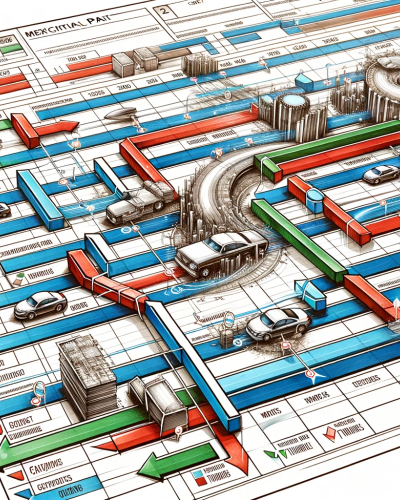Working on projects requires certain behaviors and tricks to avoid difficulties and achieve breakthroughs. What works in a project can also be used in your personal life. After many years of observing people in the wild, I have developed a few rules that make a difference compared to the past. Here are my three best and most important tools …
1. No why
That is what scientists live for — the question of “why”. It is about facts and circumstances that have a cause. In practice, this does not work because the causes are often invisible and have arisen in secret.
Therefore, a “why” question is confrontational. If am confronted with a problem and ask, “Why did you do that?” — then the person feels cornered. They don’t know the answer. And the question is about the past.
The question arises: “Why” is this the case? If I’m not a scientist, then I don’t have to answer that question. It is enough if I solve the problem.
I can avoid the confrontation by asking other questions: Who, What, Where, When, Where from, Where to and others. But to do this, I have to think for a moment. The simple and quick why-question must be directed from the past to the future. The result is a question that points to the future and to the solution.
I have revealed this trick to many people around me — and have received disbelief and scorn in return. Especially from scientists. We must remember that science looks backward — but our lives look forward.
2. No subjunctive
In grammar, the subjunctive is called the “possible form”. This means that there is or was a possibility. This means that different paths or decisions were possible — but are no longer possible.
The question “Couldn’t you have done it differently” is at least meaningless — if not illogical. It refers to a point in the past when we “took a wrong turn”. And we can’t change the past.
From the questioner’s point of view, we have made a wrong decision in the past. Or were we careless, inattentive, or lazy? No one wants to be told that — if it isn’t true.
The way out is to look into the future and make the appropriate statements. The subjunctive looks to the past and is confrontational. If we avoid this, the mood improves and the solution gets closer.
3. No buts
No “Yes — but” either! There is a saying: “Any but is a slap in the face!”. Let’s think about this: Isn’t the “but” also an indication of a wrong attitude, judgement or assumption? Who says “but” to another person? The person who thinks he has a different, better view.
In any case, the way out is to express your own opinion in a different way other than with a “but”. “I disagree” is still a easy alternative. It is better to repackage your disagreement than to slap the other person in the face.
Conclusion
It is not easy to follow these three simple rules. But the results are amazing. Try it out!
And if you are successful — share these 3 rules with those around you. You will see: The world around you will change for the better.




